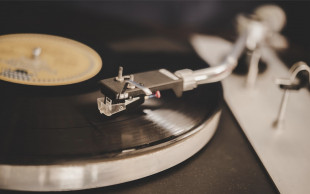Morning Calculations and Coffee
Professional poker players start their days around 10 or 11 AM. The late wake-up time makes sense when you consider that most of their profitable games run past 3 AM. After coffee, they check their bankroll from the previous night's session. A quick look at the profit and loss statement tells them if they played well or let emotions control their decisions.
The morning routine includes checking poker forums and group chats where other professionals discuss specific hands. These conversations happen in private Discord servers or Telegram groups with entry fees that keep casual players out. Players share screenshots of unusual betting patterns they noticed or new players who entered high-stakes games last night.
The Practice Hours Nobody Sees
Most professional poker players spend three to four hours each morning away from actual cash games. They review hand histories from the previous night, run simulations through software, and study opponent tendencies they've tracked over months. Some work through probability calculations by hand while others are playing poker games online at micro-stakes to test new strategies without risking their bankroll.
This practice time often happens in home offices filled with multiple monitors showing different tables and tracking software. Players might spend an hour analyzing a single decision that cost them money yesterday, breaking down each possible outcome and comparing it to what the math says they should have done.
Physical Maintenance Between Sessions
Around 2 PM, many professionals head to the gym. Physical fitness affects mental performance during long sessions, and sitting for twelve hours straight destroys posture. Some players hire personal trainers who understand their unusual schedules. Others follow basic weightlifting routines or swim laps at the local pool.
Nutrition planning takes up more time than most people would expect. Professional players avoid heavy meals before sessions since digestion affects concentration. They prepare specific snacks that won't make them tired: almonds, protein bars, and bottles of water lined up for the night ahead. Some keep meal replacement shakes ready for when they can't leave a profitable table.
The Grind Begins
By 6 PM, the real work starts. Players log into multiple online poker sites simultaneously, scanning lobbies for profitable games. They look for tables with high average pot sizes and players they recognize as weak opponents. This process might take thirty minutes of watching and waiting before finding the right seat.
Once seated, professionals play between four and eight tables at once. Each table requires constant attention: calculating pot odds, tracking betting patterns, and making decisions within the time limit. They wear noise-canceling headphones and keep their phones in another room. Bathroom breaks happen only between hands, and they eat prepared snacks without looking away from the screen.
Money Management After Midnight
As games get deeper into the night, stakes often increase. Players who lost money earlier become desperate to recover their losses, making larger bets with weaker hands. Professionals recognize these patterns and adjust their strategy accordingly. They might move to higher stakes tables if the right opponents appear, or they might cash out if they sense their concentration dropping.
Banking tasks happen during quick breaks. They transfer money between poker sites to maintain proper bankroll distribution. Most keep detailed spreadsheets tracking every session's results, including specific opponents faced and notable hands played. Tax obligations require accurate record-keeping, so they photograph receipts for travel expenses and save documentation for any poker-related purchases.
Late Night Reality
The period between 1 AM and 4 AM produces the highest hourly profits for many professionals. Recreational players get tired and make poor decisions. Alcohol affects judgment at home games and casinos. Online players from other time zones join tables with different playing styles that create profitable opportunities.
But these late hours test endurance. Eyes burn from staring at screens. Decision fatigue sets in after thousands of hands. Smart professionals set strict stop-loss limits and quit times. They know that one bad decision while exhausted can erase an entire week's profit.
Sleep and Recovery Patterns
Most professionals finish playing between 3 and 5 AM. The wind-down process takes another hour. They might watch television or read something unrelated to poker to let their minds shift away from probability calculations. Many struggle with sleep issues from the irregular schedule and mental stimulation of constant decision-making.
Recovery matters as much as playing time. Professionals who last more than a few years learn to protect their sleep. They use blackout curtains, white noise machines, and maintain consistent sleep schedules even on weekends. Some take melatonin supplements to regulate their circadian rhythms disrupted by screen exposure and irregular hours.
The cycle repeats six days a week for most full-time players. Sunday typically offers the biggest online tournaments, so they adjust their schedule to peak performance for these events. One day off per week prevents complete burnout, though many admit they still think about poker during their supposed rest days.
Conclusion: The Discipline Behind Success
The daily routine of a professional poker player isn’t about chasing luck — it’s about discipline, structure, and an obsession with constant improvement. Every session, every review, and every decision adds to a pattern of consistency that separates professionals from hobbyists.
Behind the glamour of televised tournaments and six-figure wins lies an intense lifestyle built on study, health, and self-control. These players treat poker like a science — balancing logic, focus, and endurance to stay profitable in a game where small edges define success. For them, poker isn’t just a career; it’s a full-time pursuit of mastery.
Frequently Asked Questions (FAQs)
- How many hours do professional poker players practice or play each day?
Most pros dedicate between 8 and 12 hours daily to a combination of study, review, and live or online play. The balance depends on the player’s goals and upcoming tournaments. - What time do professional poker players usually start playing?
Most start their main sessions between 6 PM and 8 PM, aligning with peak traffic and weaker competition during late hours. - How do professional poker players stay focused during long sessions?
They maintain fitness routines, eat light, use proper lighting, and take micro-breaks to avoid fatigue. Many also set mental boundaries, ending sessions when decision-making quality drops.

















